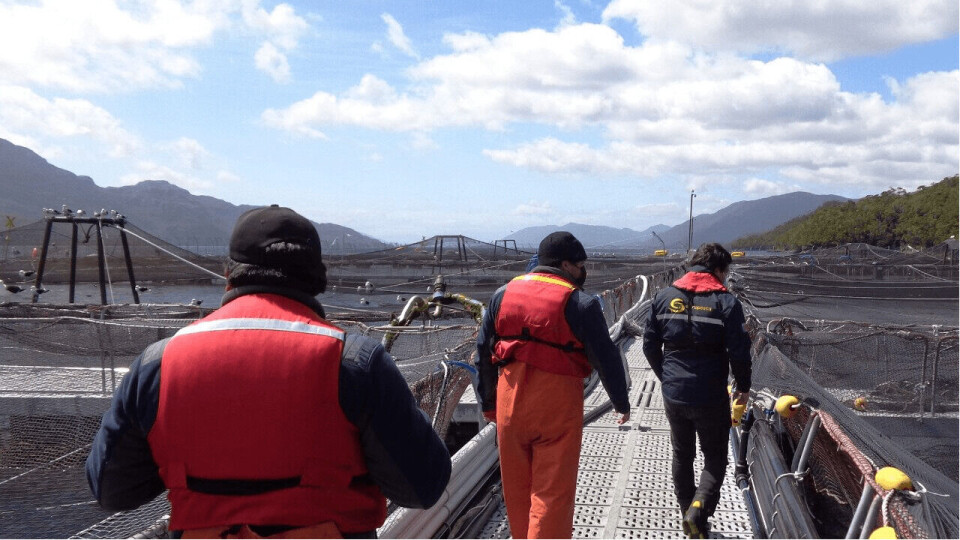
AquaChile appeals £309,000 fine for farm rules breaches
The world’s second-largest salmonid farmer, AquaChile, is appealing against a fine of 344 million pesos (£309,000) imposed by a court for rules breaches at a salmon farm run by AquaChile group company Los Fiordos in 2019.
AquaChile says the court’s decision contains errors of both fact and law.
Los Fiordos was sentenced by the Puerto Aysén court for infractions associated with the mismanagement of mortality at the Gertrudis 2 farm located in the King Channel, Cisnes commune, Aysén region.
Biosecurity non-compliance
Among the infractions judged to have been committed by the company are the non-timely extraction of daily mortality; failure to ensile the extracted mortality within 24 hours; non-compliance with containment and biosecurity measures and the delivery of unreliable information regarding the health of the fish, among other things.
All the breaches were found in a series of audits carried out by Chile’s state aquaculture agency, Sernapesca between April and May 2019.
According to the court ruling, inspectors found that the farm did not have the technical and human capacity necessary for the extraction of daily mortality.
Two subsequent inspections revealed that the company hadn’t corrected the problem, despite the fact that the farm had been classified as “High Dissemination” for Piscirickettsiosis (SRS) and Caligus (sea lice), that should have necessitated an increase in the frequency of withdrawal of mortality to at least twice a day, in accordance with the Specific Sanitary Program of Surveillance and Control of SRS.
‘False lice numbers’
The court also decided that Los Fiordos gave false information about lice numbers, as it had reported parasite loads “lower than those that could be verified according to the biology of the parasite”. A significant difference of 365.15% in lice numbers was found by Sernapesca four days after the figures were submitted, “a variation that with only four days of difference between monitoring is not consistent with the biological cycle of the parasite”.
Sernapesca said it had pushed for the maximum punishments for the offences.
“In the fulfilment of our supervisory role, it is not acceptable for aquaculture companies to ignore the notifications and observations that our teams make during the inspections of the farming centres,” said Sernapesca boss, Claudio Báez.
“In this case, several audits were carried out detecting important deficiencies, the most serious in a context of health risk, which were not corrected in a timely manner.”
‘No right to defence’
AquaChile told Fish Farming Expert’s Chilean sister site, Salmonexpert: “It is a sentence that we are going to appeal before the Court of Appeals, because the company did not have the right to defence and the sentence presents vices and errors of fact and law.”
Last year AquaChile produced 248,000 tonnes (whole fish equivalent) of Atlantic and coho salmon and rainbow trout. It is owned by Chilean agriculture giant Agrosuper and has grown through a series of acquisitions and mergers to become the world’s second-largest salmonid farmer after Mowi.






















































